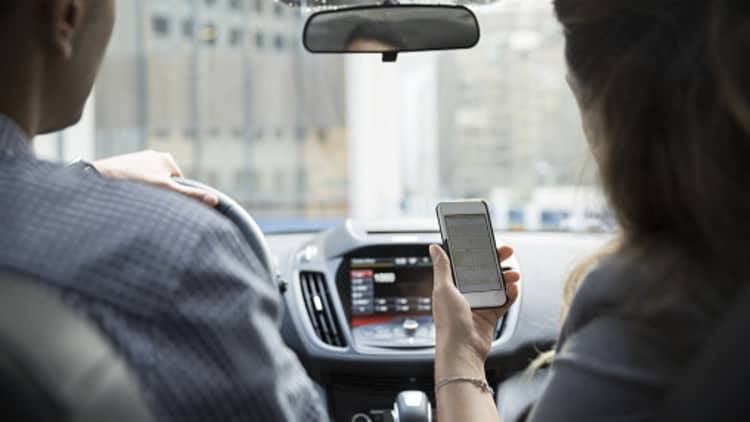
Gas prices are the highest they've been in four years, and Uber and Lyft drivers are feeling the pinch.
Ride-share drivers are responsible for operating expenses like car maintenance and gas. CNBC spoke with drivers, who say that higher costs at the pump are an increasing concern.
Fernando Felicio moved to San Francisco from New York a few months ago. He said he's paying much more now, a result of both the rising costs nationally and the fact that prices are higher on the West Coast. He now needs 20 to 25 rides to make the same amount of money that 15 rides would generate for him in New York.
It's already a tough way to make a living. Uber drivers on average make $18 an hour, according to a study co-authored by Uber's chief economist.
While some drivers are working more frequently to make up for the higher costs, others say it's sometimes not worth filling up the tank, so they're driving less.
Jorge Jiron, a Bay Area driver, said he spends $60 per day on gas, and used to be on the road nine hours a day, starting at 5 a.m. Now, he sometimes stops mid-morning because $60 doesn't get him as far and he can't afford another full tank.
Both Uber and Lyft have some ways to help drivers offset the costs.
Uber provides an "Uber Visa Debit Card" from GoBank that offers cash back rewards for gas. Lyft partners with Shell on a "Fuel Rewards" program that gives drivers discounts of 5 to 7 cents a gallon on gas.
But Harry Campbell, who runs a blog and podcast called The Rideshare Guy and published a book, The Rideshare Guide, on the subject, said that the ride-hailing companies can do more to help their drivers.
"Frankly, I've been a little disappointed by Uber and Lyft's response because they've sort of completely ignored the issue of rising gas prices," Campbell said. They need to "at least acknowledge the fact that, yes we see gas prices are going up and are thinking about ways we can combat this," he said.
Reducing expenses might be one way these companies compete for drivers.
Lyft, for example, recently announced plans to invest about $100 million to build about 30 support centers, where drivers can get oil changes and basic vehicle maintenance at a discount.


